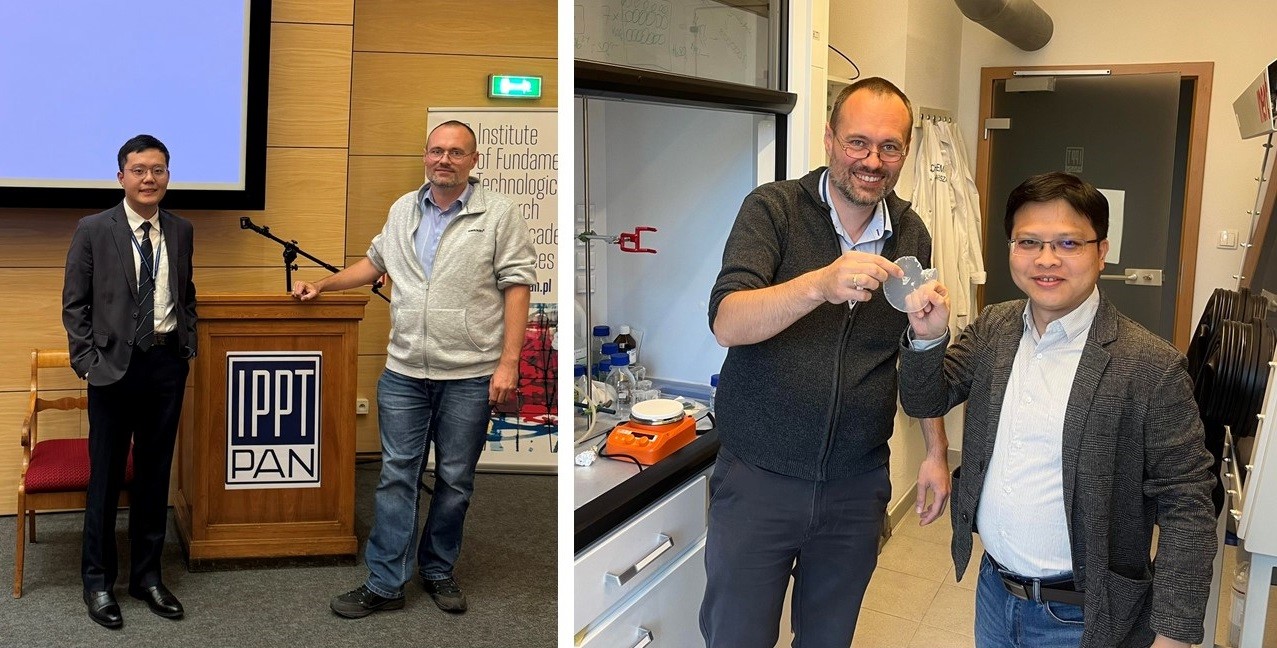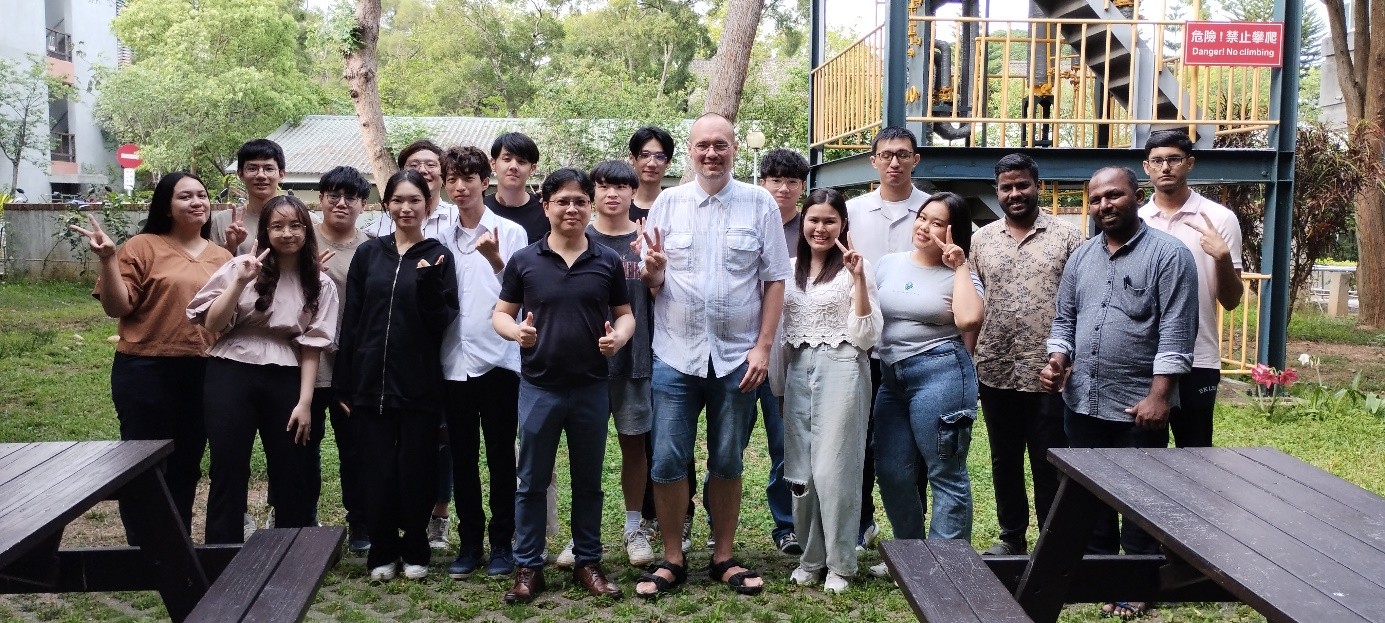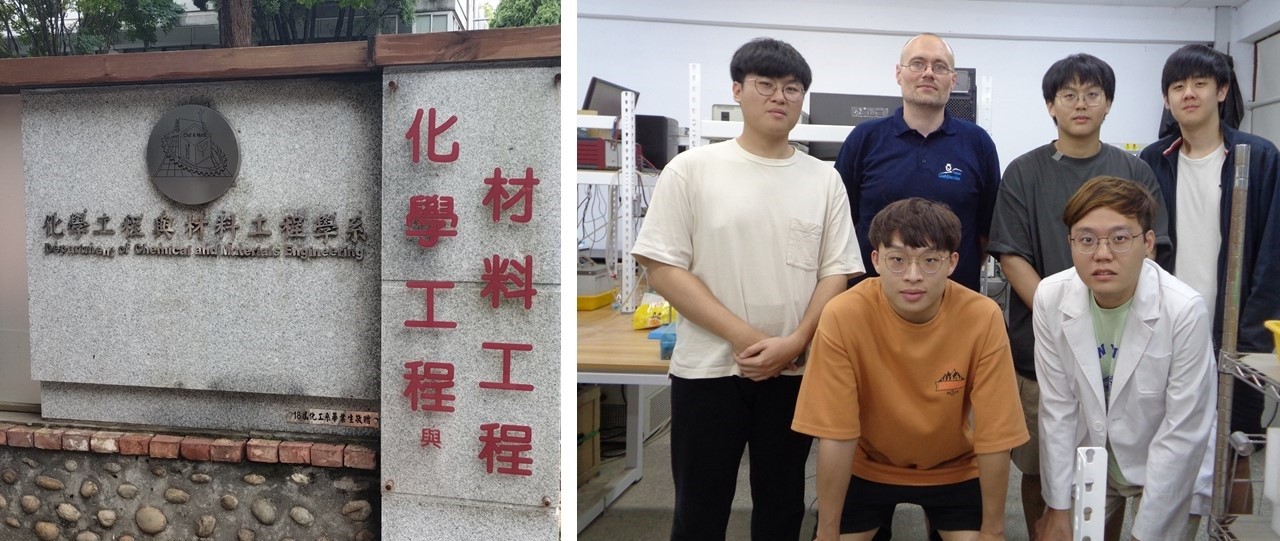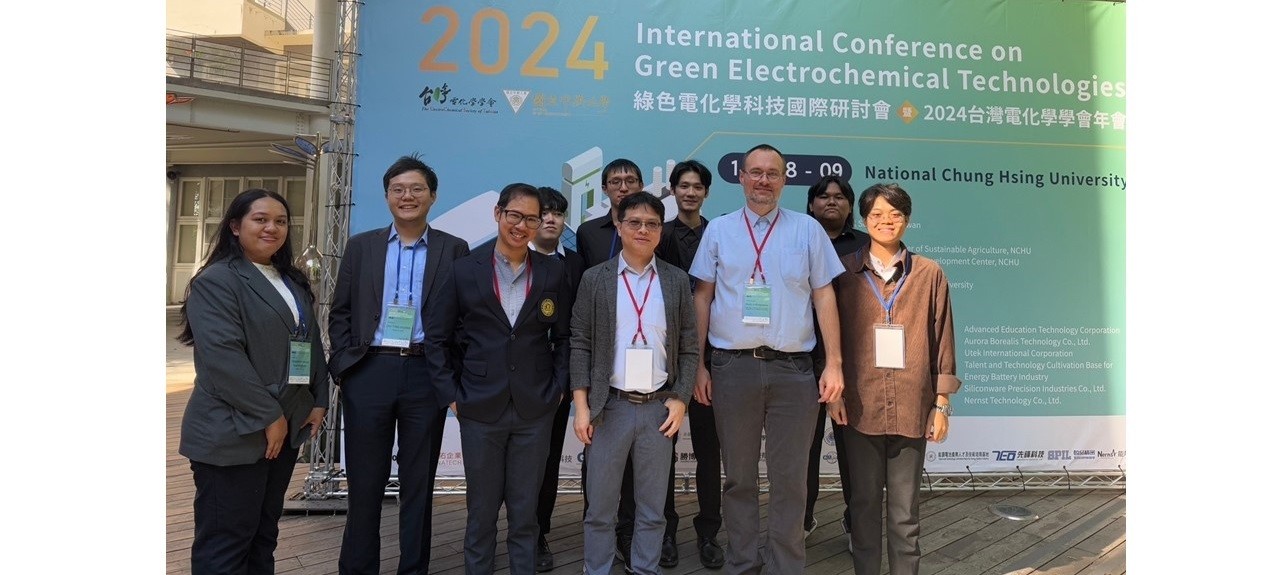The Polish-Taiwanese collaboration has a long-standing history and continues today through the work of Dr. Hab. Eng. Marcin Krajewski from the Department of Mechanics of Materials at IPPT PAN. This collaboration is part of the 2023-2024 mobility project, conducted jointly by the Polish Academy of Sciences and the National Science and Technology Council in Taipei. The joint project, Development of New Hybrid Electrolyte Materials for Flexible High-Voltage Supercapacitors, integrates research efforts from IPPT PAN in Warsaw and Tunghai University in Taiwan.
The project is coordinated by Dr. Hab. Eng. Marcin Krajewski from the Laboratory of Advanced Composite Materials at IPPT PAN and Prof. Jeng-Yu Lin from the Department of Chemical and Materials Engineering at Tunghai University (photos 1 and 2). Together, they are conducting pioneering research on innovative energy storage solutions, which could play a crucial role in shaping the future of the energy sector.

Project aim: new generation of materials for supercapacitors
In an era of rapidly increasing energy consumption and the urgent need for efficient energy storage, supercapacitors present unique solutions due to their high power density. However, their potential is constrained by relatively low energy density. The project focuses on developing hybrid electrolyte materials to enhance the voltage range and, ultimately, improve the performance of supercapacitors.
The researchers focused on combining useful properties of two types of electrolytes: deep eutectic and stable. Deep eutectic electrolytes, composed of a mixture of hydrogen-bonded components, allow for precise tailoring of material properties. On the other hand, stable electrolytes offer exceptional flexibility, electrochemical stability, and resistance to leakage, making them an ideal choice for high-voltage devices. By integrating these features, the team developed a novel hybrid material that effectively meets the demanding requirements of supercapacitors.
The project has yielded several significant benefits beyond the development of hybrid materials:
- Access to the state-of-the-art research infrastructure: Scientists from Poland and Taiwan had the opportunity to utilize advanced laboratory equipment at both institutions.
- Knowledge sharing and collaboration: The project facilitated cooperation between experienced researchers, young scientists, students, and doctoral candidates. Through joint research efforts and workshops, participants extended their expertise in modern energy storage technologies. Their collaborative work and experiences are depicted in photos 1, 3, and 5.
- Global promotion of research results: The project’s outcomes were presented at the prestigious 2024 International Conference on Green Electrochemical Technologies (ICGET-TW), held in November 2024 in Taichung City. The conference attracted experts from around the world (photo 6).



The Significance of Collaboration for Science and Economy
Owing to the research teams led by Dr. Hab. Eng. Marcin Krajewski and Prof. Jeng-Yu Lin, teams, a novel hybrid material has been developed, unlocking numerous possibilities for advancing sustainable energy storage technologies. By combining expertise from diverse scientific disciplines – such as chemical engineering, materials engineering, and electrochemistry – the collaboration opens new avenues for innovative solutions in future electric energy storage devices.
The Polish-Taiwanese collaboration in this project is an example of an effective exchange of expertise, strengthening institutional relationships and driving scientific progress in key areas of technology.















